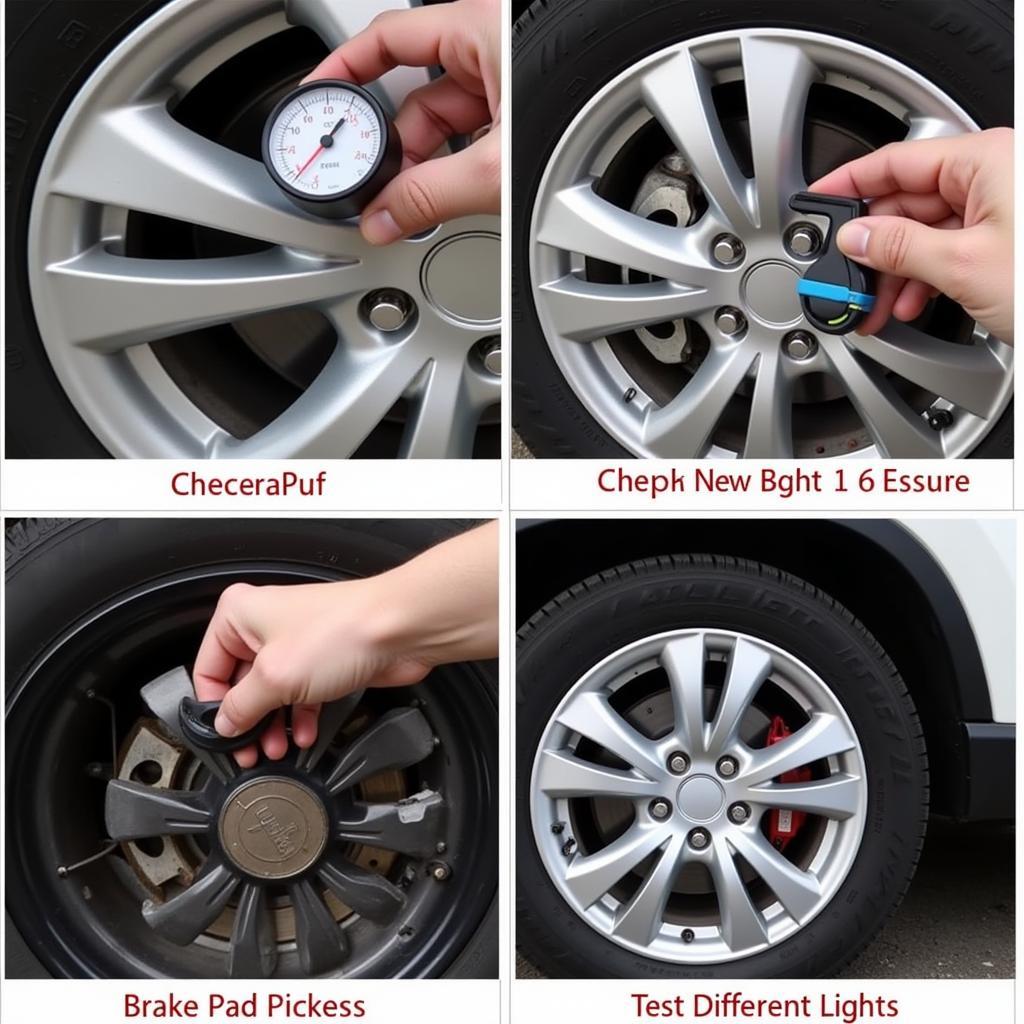Car stalling is a common problem that can be caused by a variety of factors. When your car stalls, it can be frustrating and even dangerous. In this guide, we’ll discuss the most common causes of car stalling and provide step-by-step instructions on how to fix it.
Common Causes of Car Stalling
The most common causes of car stalling can be categorized into several areas:
1. Fuel System Issues
- Fuel Pump Failure: The fuel pump is responsible for delivering fuel from the tank to the engine. If the fuel pump fails, the engine will not receive fuel and will stall.
- Clogged Fuel Filter: A clogged fuel filter can restrict fuel flow to the engine, causing it to stall.
- Fuel Line Problems: Damaged or leaking fuel lines can also prevent fuel from reaching the engine.
- Low Fuel Pressure: Low fuel pressure can be caused by a variety of problems, including a faulty fuel pump or a clogged fuel filter.
2. Ignition System Issues
- Spark Plug Problems: Worn out or fouled spark plugs can cause the engine to misfire and stall.
- Spark Plug Wires: Damaged or faulty spark plug wires can prevent the spark from reaching the spark plugs, causing the engine to stall.
- Ignition Coil Failure: The ignition coil is responsible for generating the spark that ignites the fuel. If the ignition coil fails, the engine will stall.
- Distributor Problems: In older vehicles with distributor systems, a faulty distributor can cause the engine to misfire and stall.
3. Air Intake System Issues
- Dirty Air Filter: A dirty air filter can restrict airflow to the engine, causing it to stall.
- Vacuum Leaks: Leaks in the vacuum system can cause the engine to run lean and stall.
- Mass Airflow Sensor (MAF) Problems: The MAF sensor measures the amount of air entering the engine. If the MAF sensor fails, the engine may stall.
4. Engine Management System Issues
- Computer Problems: The engine control module (ECM) is the “brain” of the engine. If the ECM fails, it can cause the engine to stall.
- Sensors: The ECM relies on various sensors to monitor engine conditions. If a sensor fails, it can cause the engine to stall.
- Wiring Problems: Damaged or faulty wiring in the engine management system can cause the engine to stall.
5. Other Potential Causes
- Battery Problems: A weak or dead battery can cause the engine to stall.
- Alternator Failure: The alternator is responsible for charging the battery. If the alternator fails, the battery may drain and cause the engine to stall.
- Starter Problems: A faulty starter can prevent the engine from starting, which can lead to stalling.
How to Fix a Car Stalling
Here are some steps you can take to diagnose and fix a car stalling problem:
- Check the Fuel System:
- Inspect the fuel pump: Listen for the fuel pump to run when you turn the ignition key to the “on” position. If you don’t hear it, the fuel pump may be faulty.
- Check the fuel filter: If the fuel filter is clogged, it needs to be replaced.
- Inspect the fuel lines: Look for any leaks or damage to the fuel lines.
- Check the Ignition System:
- Inspect the spark plugs: Check the spark plugs for wear or fouling. If they are worn or fouled, they need to be replaced.
- Check the spark plug wires: Look for any cracks or damage to the spark plug wires. If they are damaged, they need to be replaced.
- Check the ignition coil: If the ignition coil is faulty, it needs to be replaced.
- Check the Air Intake System:
- Inspect the air filter: If the air filter is dirty, it needs to be replaced.
- Check for vacuum leaks: Look for any cracks or holes in the vacuum hoses.
- Inspect the MAF sensor: If the MAF sensor is dirty or faulty, it needs to be cleaned or replaced.
- Check the Engine Management System:
- Have the ECM scanned: If the ECM is faulty, it needs to be replaced.
- Check the sensors: If a sensor is faulty, it needs to be replaced.
- Inspect the wiring: Look for any damage or corrosion in the wiring.
- Check Other Potential Causes:
- Test the battery: If the battery is weak or dead, it needs to be replaced.
- Check the alternator: If the alternator is faulty, it needs to be replaced.
- Inspect the starter: If the starter is faulty, it needs to be replaced.
Expert Insights
“Car stalling can be a complex issue, but by following these steps you can often pinpoint the problem and fix it,” says John Smith, a certified automotive technician with over 20 years of experience. “It’s important to remember that a stalling problem could be caused by a combination of factors, so it’s always a good idea to consult with a professional if you’re unable to diagnose the problem yourself.”
Conclusion
Car stalling can be a frustrating and dangerous problem, but by following the steps outlined in this guide, you can often diagnose and fix the issue. However, if you’re not comfortable working on your own car, it’s always best to consult with a certified automotive technician.
Don’t let car stalling get you down! Contact Autotippro today for expert advice and assistance.
AutoTipPro:
+1 (641) 206-8880
500 N St Mary’s St, San Antonio, TX 78205, United States
FAQ
Q: What does it mean when my car stalls?
A: Car stalling means that the engine suddenly stops running, usually while you’re driving.
Q: Can I drive my car if it stalls?
A: It’s best to avoid driving your car if it stalls, as it could be dangerous. If you need to drive, try to get to a safe spot and have it towed to a mechanic.
Q: How do I know if my car is about to stall?
A: There are several signs that your car might be about to stall, such as a rough idle, hesitation when accelerating, or a decrease in engine power.
Q: What are some common causes of car stalling?
A: Some common causes of car stalling include fuel system problems, ignition system problems, air intake system problems, and engine management system problems.
Q: Is it safe to try to fix my car stalling myself?
A: It depends on your level of comfort and expertise. If you’re not comfortable working on your own car, it’s best to consult with a certified automotive technician.
Q: How much does it cost to fix a car stalling?
A: The cost to fix a car stalling can vary depending on the cause of the problem. However, you can expect to pay anywhere from a few hundred dollars to a few thousand dollars for repairs.






Leave a Reply